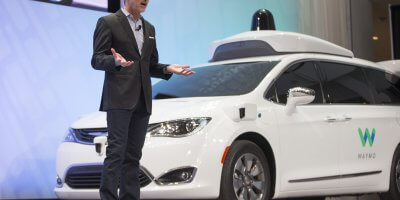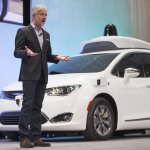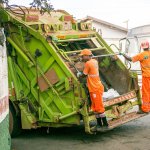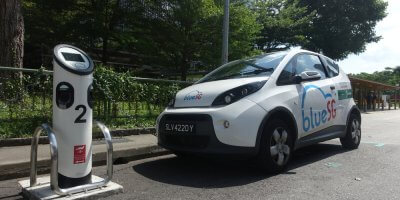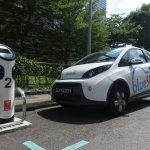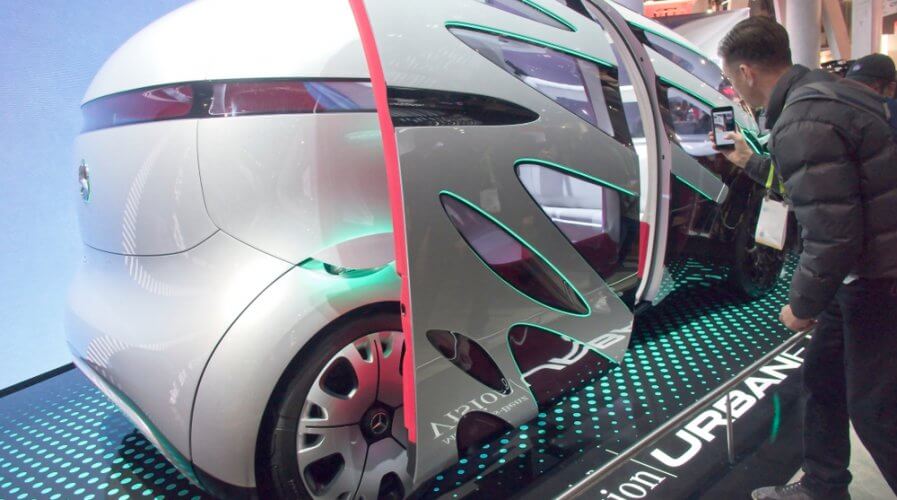
Tomorrow’s autonomous cars need to be built differently says OpenMotors CEO. Source: Shutterstock
Self-driving cars need to be like airplanes to support Mobility as a Service
WHILE self-driving cars seem to be quite an interesting topic in the tech world, automakers such as Ford and General Motors believe they’ll serve more like public utilities than consumer-owned vehicles in the future.
A majority of automakers focused on developing self-driving cars hope to be able to rent them out to ride-sharing platforms such as Uber and Lyft who are transitioning to mobility as a service (MaaS) platforms in a bid to assist customers whether they choose to take the bus, cycle, or car to their destination.
Both Uber and Lyft have made significant progress towards becoming MaaS platforms in parts of the US, although the projects are yet to be scaled up nationwide in the US and to overseas markets.
According to Open Motors Founder and CEO Tin Hang Liu, however, if self-driving cars are really to support a MaaS future, they need to be more like airplanes and less like today’s passenger vehicles.
“Vehicles, especially cars, are designed for up to 10 years of use provided they’re used for up to 2 hours a day. With mobility as a service (MaaS) platforms, these vehicles are expected to be used for 20 hours a day — significantly increasing wear and tear.”
“In order for us to really make the most of these vehicles, we need to develop (self-driving) cars mimic commercial airplanes. Those are designed to last for decades despite continuous use, and that’s what tomorrow’s vehicles need as well.”
Tin’s concern is that once autonomous vehicles make a debut, they’ll be expected to keep moving from one destination to another, ferrying passengers across the city.
However, since ordinary cars aren’t prepared for constant use, Tin believes that wear and tear will significantly increase the total cost of ownership (TCO) for companies running the service.
“Constant wear and tear as a result of operating on a MaaS platform will cause autonomous vehicles to degrade within two to three years. This is a big problem because today’s cars cannot really be refurbished.”
Tin’s Open Motors is working on a modular self-driving car it calls EDIT that is better suited to the new future of mobility than conventional vehicles with autonomous-driving upgrades.
Conceptually comparable to massively successful US-based self-driving vehicle maker Zoox, EDIT is an electric vehicle that runs on swappable batteries and can be refurbished to extend the life of the vehicle.
Tin acknowledges that cars that run on batteries seem like a bad idea for those that plan to use the vehicle on a ‘mobility as a service’ platform, especially when you consider that the battery might be drained and render the vehicle useless during peak hours.
“It’s known as range anxiety — and we believe swappable batteries could help eliminate this problem in the future, allowing vehicles to remain operational at all hours of the day.”
Ahead of his speaking session at the TechSauce Summit next month, Tin points out that although we might not have all the answers right now, the future of mobility is autonomous and depends on innovators to create a more robust vehicle to ensure the sustainability of the planet as well as profits for fleet owners.
“We’re heading towards an interesting future with new-age vehicles, and EDIT and similar vehicles have a big role to play in enabling a seamless transition,” concluded Tin.
READ MORE
- Safer Automation: How Sophic and Firmus Succeeded in Malaysia with MDEC’s Support
- Privilege granted, not gained: Intelligent authorization for enhanced infrastructure productivity
- Low-Code produces the Proof-of-Possibilities
- New Wearables Enable Staff to Work Faster and Safer
- Experts weigh in on Oracle’s departure from adland

